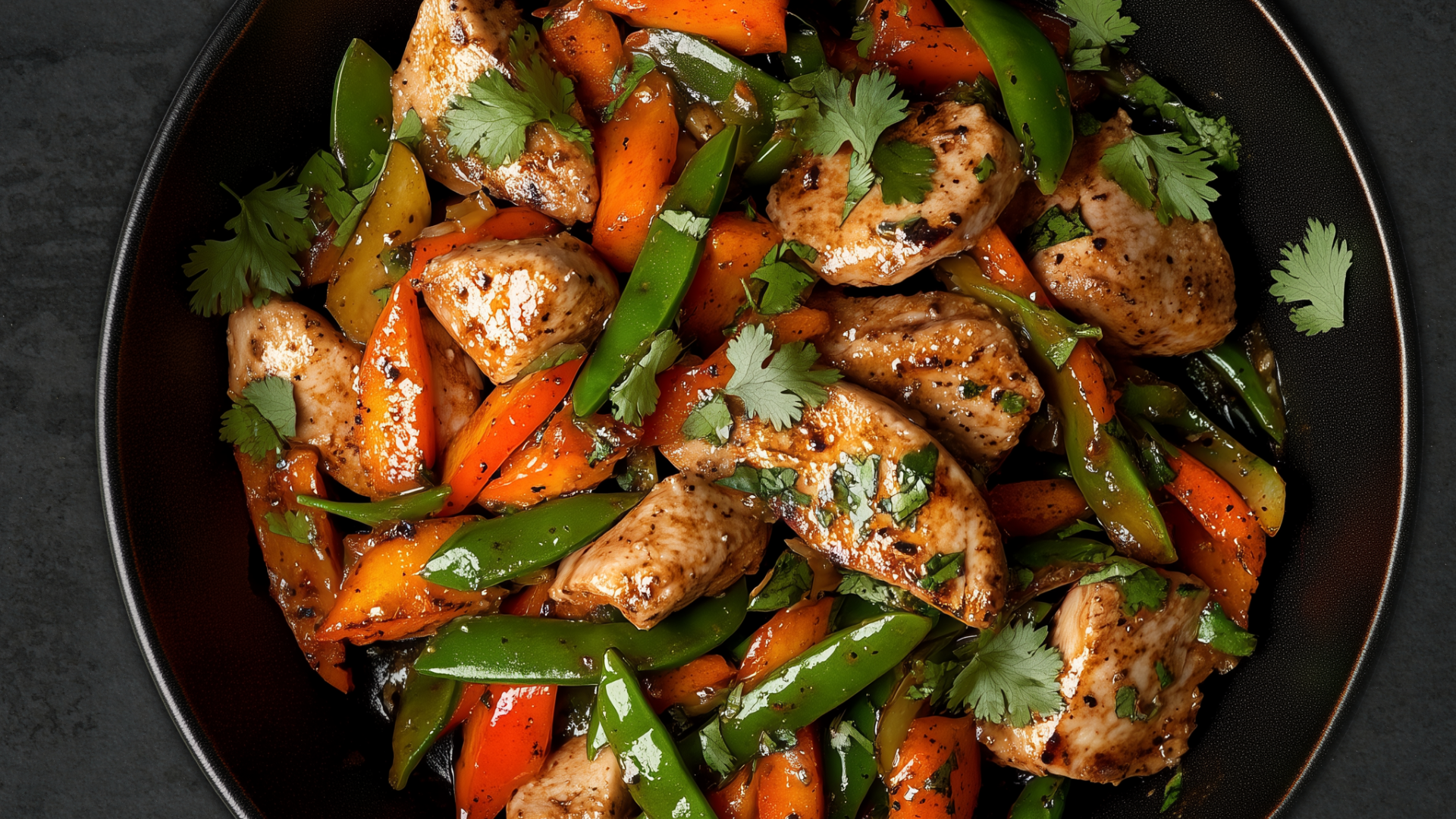The
Daily
Fix
For Load:
Spicy Ginger & Lime Chicken Stir-Fry
Have cancer deaths dropped by a third over the last three decades?

Overhead squat 3-3-3-3-3 reps
This stir-fry offers a perfect balance of spicy, tangy, and savory flavors, with a hint of sweetness from the coconut oil.
Investigators and the media need to be more careful interpreting and reporting “cancer mortality”
Practice scales and stretch for 20 minutes.
Post loads to comments.
Ingredients
6 oz chicken breast, sliced
2 Tbsp coconut oil
4 tsp red bell pepper, diced
¼ cup green bell pepper, diced
¼ cup of snap peas
1 carrot, chopped
1 clove garlic, minced
1 Tbsp ginger, peeled, minced
¼ cup red chili pepper
½ oz lime juice
½ tsp lime zest
¼ cup cilantro, chopped
1 Tbsp soy sauce, tamari
Salt and pepper to taste
Macronutrients
Protein: 40g
Fat: 43g
Carbs: 17g
Preparation
Prepare the sauce: In a small bowl, mix the lime juice (½ oz), lime zest (½ oz), and soy sauce (1 Tbsp). Set aside.
Cook the chicken: Heat coconut oil (2 Tbsp) in a skillet over medium-high heat. Add the chicken slices (6 oz) and cook until they are browned and fully cooked. Remove from the pan and set aside.
Stir-fry the vegetables: In the same pan, add more coconut oil if needed, then sauté minced garlic (1 clove), minced ginger (1 Tbsp), and red chili pepper (¼ cup) until fragrant. Add the diced green bell peppers (¼ cup), diced red bell pepper (4 tsp), snap peas (¼ cup), and chopped carrot (1.) Stir-fry for 3-4 minutes until vegetables are tender but still crisp.
Combine and serve: Return the chicken to the pan, pour in the sauce, and mix well to coat everything evenly. Cook for another 1-2 minutes. Garnish with fresh chopped cilantro (¼ cup) before serving, and season with salt and pepper to taste.
In the last few years, headlines around the country touted a win on The War on Cancer. The White House Cancer Moonshot office announced the US “has cut cancer deaths by one-third over the last 30 years,” adding that this demonstrates “great progress.”
But cancer took the lives of 602,350 people in 2020, up 85,000 since 1990.
This is an increase in total deaths, so how are the officials using statistics to paint a positive picture when in fact the reality is far more grim? Bob Kaplan explores how using death rates and age-adjusted data distorts the real story of our losing battle with cancer and offers some suggestions on how they might be more accurate in their reporting.
“When the investigators, news outlets, and public health authorities tell us that cancer deaths or the cancer mortality rate have dropped by a third in the past three decades, how many of the millions of people who received this information are aware that this decrease was arrived at by comparing two fictitious cancer mortality rates?”
COMMENTS
55-60-65-70-75lbs
M/45/6’2”/215lbs
Charlotte, NC
sub weighted dips
10-20-30-40-50-60#s

MONDAY 250331